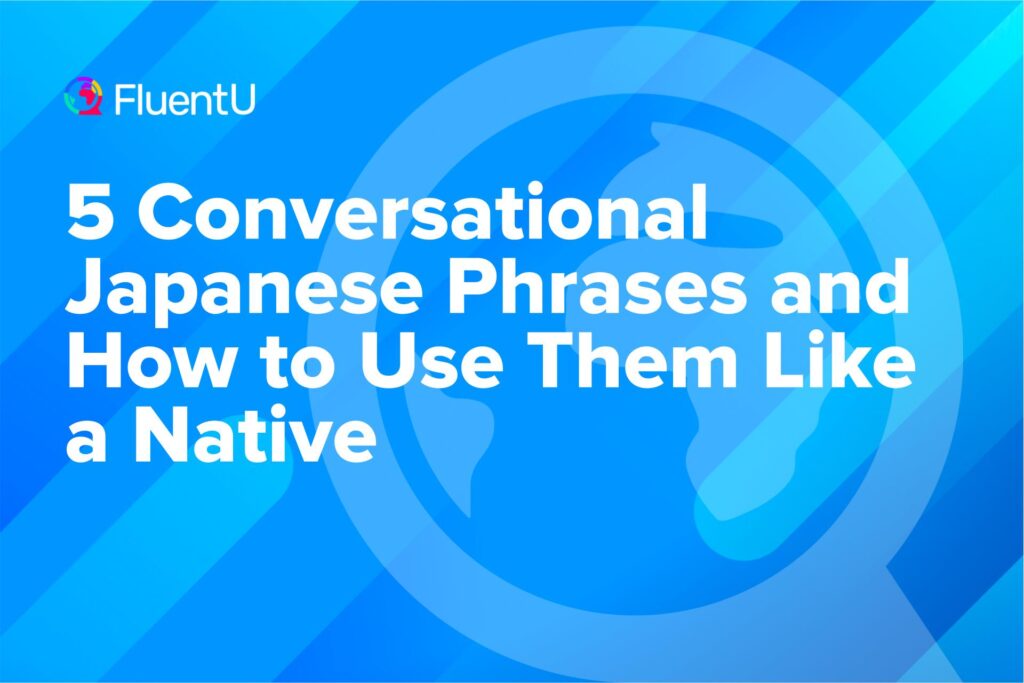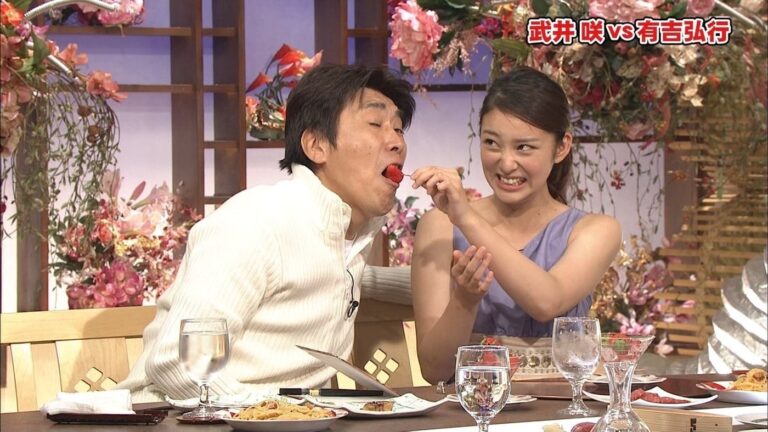5 Conversational Japanese Phrases and How to Use Them Like a Native

Are you ready to get your head out of that textbook and start communicating in Japanese? Perhaps you’ve been picking up grammar and pronunciation from your standard fare of dramas, anime shows and music—but now it’s time to test your Japanese out in the real world.
Rather than let you unwittingly walk into dozens of awkward scenarios, let’s explore some social phrases together that help you sound more natural in Japanese.
Download: This blog post is available as a convenient and portable PDF that you can take anywhere. Click here to get a copy. (Download)
1. よろしくお願いします (よろしくおねがいします)
English translation: Thanks for all the stuff you haven’t done for me yet.
よろしくお願いします is a phrase you’ll hear constantly. It’s usually accompanied by a deep and heartfelt bow. A friend of mine described it as the “secret password” of the Japanese language which opens every door.
At its most basic, the phrase よろしくお願いします is used when you’re asking someone to do something for you. This can be anything from asking for change at a convenience store (probably shortened to the less formal よろしく) to sealing an important business deal that’s going to mean mega-profits for both parties in the near future.
When you use this phrase, you’re thanking the other person for things they haven’t done yet. It seals a deal or solidifies a relationship. You’ll hear it at the end of business meetings after both parties have agreed to their respective responsibilities. It means something like, “I’m indebted to you.”
It’s also used when first greeting someone. If you think about it, this is the same meaning. You’re opening up a relationship with the person and thanking them in advance for all that they’ll do for you in the future. It’s like another greeting, 初めまして ( はじめまして), which means “how do you do?”, but more polite.
2. お疲れ様でした
English translation: You worked hard, didn’t you?
Like many Westerners, my first impression of the Japanese was that they were work-obsessed machines. I noticed that my co-workers ended each workday by saying お疲れ様でした to each other. 疲れ is the root of the verb 疲れる, which means “to be tired.” I thought, “Can’t they ever stop talking about how tired they are or how hard they worked?”
Eventually, I learned the shocking truth behind お疲れ様でした – the speaker isn’t talking about themselves. They’re talking about the other person. That’s why when you tell someone, “I just got off work,” they say お疲れ様でした, even if they haven’t been working.
Like a handful of similar phrases such as ご苦労様でした (ごくろうさまでした), which means something like “You must’ve had a hard time,” お疲れ様でした is said to recognize the work the other person has done. It means something like, “You worked hard and did a darn good job, now kick up your heels.”
The phrase actually doesn’t necessarily have anything to do with hard work. It’s just a phrase used when something is over, whether it’s your day at work or a tennis match. As a musician, I noticed people say it to you when come off stage, or even when a rehearsal is over. To me, rocking out is hardly “hard work.” The phrase is used to recognize the end of something you did.
3. おはようございます
English translation: Good morning (in the middle of the afternoon)
Even the phrase you learn in Lesson 1 of your Japanese textbook isn’t quite what you think it is. おはようございます, which means “good morning,” actually doesn’t always mean good morning.
When I first started playing in bands, I noticed that everybody always greeted each other with おはようございます, even if we were rolling up to the club at 11 o’clock at night. I thought this was a bit of musician-only irony that we all shared, like saying, “We’re such outcasts and creatures of the night that the nighttime for us is morning!”
Then I was thrown into a state of horror and utter confusion to learn that the security guards at a place I worked greeted each other with おはようございます when they clocked in to the late shift (Note: when learning another language, that horror and utter confusion means you’re learning).
It turns out that in certain situations, people say おはようございます the first time they see each other that day, even if it’s actually at night. What it really means is something like, “This is the first time we’re seeing each other today.”
But here’s a caveat: it’s not used like this in all situations, so before you start saying it to everyone at the English school where you work at 4 in the afternoon, listen to see if other people say it. Otherwise, there’ll be some good-natured laughter and ridicule of your pre-Lesson 1 Japanese language ability.
4. 頑張って (がんばって)
English translation: The human race is counting on you.
頑張って is the imperative form of the verb 頑張る , which means something like, “Try your best.” It’s said very often and is usually translated to something that you might see on an inspirational poster with a kitten hanging onto a tree branch: “Hang in there!” “Try your best!” “Don’t give up!” “You can do it!” “Go for it!”
This kind of translation into English is often extremely awkward because 頑張って is used in a variety of situations. Another social phrase, it’s used to encourage the listener. The encouragement could be anything from parachuting alone into a war zone to save the human race from a zombie apocalypse (doesn’t happen often, but surely 頑張って would be appropriate here), to going off to work in the morning or trying to unscrew a light bulb.
In English, phrases like “Try your best” or “Hang in there” are only used when the task at hand is pretty daunting. You wouldn’t say that to a spouse leaving for work in the morning unless their job was particularly difficult or terrible. But in Japanese, it’s used for all kinds of occasions – virtually any situation where somebody is doing something that requires any effort whatsoever.
5. お邪魔します (おじゃまします)
English translation: I am destroying your peaceful home with my brash and horrible presence.
I had a job once where I entered Japanese homes regularly. My boss told me that when you enter a home, you say お邪魔します. The word 邪魔 means “in the way.” The phrase literally means something like, “I’m intruding on your happy home.”
Naturally, innocent Westerner that I am, I wondered how we could be both invited and intruding. My boss gave me some of the best Japanese language learning advice I ever got. He said, “Don’t think about it. Just say it.”
In my country, you’d enter someone’s house and say, “Wow, nice place you got here.” In Japan, that would be strange and inappropriate. To say お邪魔します is to recognize that you’re entering somebody else’s space and to thank them for having you over. You don’t actually believe that you’re intruding on someone’s house. In fact, you’ll see close friends and relatives smilingly singing お邪魔します as they barge into each other’s homes.
The Secret to Mastering Social Phrases in Japanese
Early on in my time in Japan, I figured out the key to mastering social phrases such as these – pay attention and when everybody says something, say it too. Try to understand the phrase’s social meaning or the feelings it expresses, rather than trying to literally translate as you might do with simpler phrases.
It also helps a great deal to have a native Japanese teacher or friend who is good at explaining things like these to you. Social phrases belong to the realm of stuff that’s not always explained well in textbooks. Your Japanese friend can coach you on when to use social phrases and explain the meaning behind them in a way that’s clearer and more thorough.
Other than conversing with your Japanese friend or teacher, there are activities you can do on your own, such as listening to native audio content. Japanese dramas, podcasts and interviews can give you tons of insight into phrases and their social contexts.
Subtitled videos, in particular, are helpful since you can actually spot the phrases in the text and also see how natives react to them. From closed captioning options on the streaming platform Netflix to interactive subtitles on the media-based language program FluentU, there’s a variety of resources with subtitled Japanese content that can help you understand the usage of conversational phrases.
FluentU takes authentic videos—like music videos, movie trailers, news and inspiring talks—and turns them into personalized language learning lessons.
You can try FluentU for free for 2 weeks. Check out the website or download the iOS app or Android app.
P.S. Click here to take advantage of our current sale! (Expires at the end of this month.)

In any case, these phrases are important to master. If you can whip them out at just the right time, you’ll sound like a native! 頑張って!
Download: This blog post is available as a convenient and portable PDF that you can take anywhere. Click here to get a copy. (Download)
And One More Thing...
If you love learning Japanese with authentic materials, then I should also tell you more about FluentU.
FluentU naturally and gradually eases you into learning Japanese language and culture. You'll learn real Japanese as it's spoken in real life.
FluentU has a broad range of contemporary videos as you'll see below:

FluentU makes these native Japanese videos approachable through interactive transcripts. Tap on any word to look it up instantly.

All definitions have multiple examples, and they're written for Japanese learners like you. Tap to add words you'd like to review to a vocab list.

And FluentU has a learn mode which turns every video into a language learning lesson. You can always swipe left or right to see more examples.

The best part? FluentU keeps track of your vocabulary, and gives you extra practice with difficult words. It'll even remind you when it’s time to review what you’ve learned. You'll have a 100% personalized experience.
Start using the FluentU website on your computer or tablet or, better yet, download the FluentU app from the iTunes or Google Play store. Click here to take advantage of our current sale! (Expires at the end of this month.)







